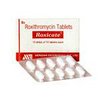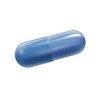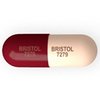INDICATIONS
Erythromycin is used for treating infections caused by certain bacteria. It is also used to prevent bacterial endocarditis and attacks of rheumatic fever. Erythromycin is a macrolide antibiotic. It works by slowing the growth of, or sometimes killing, sensitive bacteria by reducing the production of important proteins needed by the bacteria to survive.
INSTRUCTIONS
Use Erythromycin as directed by your doctor.
- Take Erythromycin by mouth with or without food. If stomach upset occurs, take with food to reduce stomach irritation.
- Swallow Erythromycin whole. Do not break, crush, or chew before swallowing.
- Do not eat grapefruit or drink grapefruit juice while you use Erythromycin.
- Erythromycin works best if taken at the same time each day.
- To clear up your infection completely, take Erythromycin for the full course of treatment. Keep taking it even if you feel better in a few days.
- If you miss a dose of Erythromycin, take it as soon as possible. If it is almost time for the next dose, skip the missed dose and go back to your regular dosing schedule. Do not take 2 doses at once.
Ask your health care provider any questions you may have about how to use Erythromycin.
STORAGE
Store Erythromycin at room temperature, below 86 degrees F (30 degrees C). Store away from heat, moisture, and light. Do not store in the bathroom. Keep tightly closed. Keep Erythromycin out of the reach of children and away from pets.







